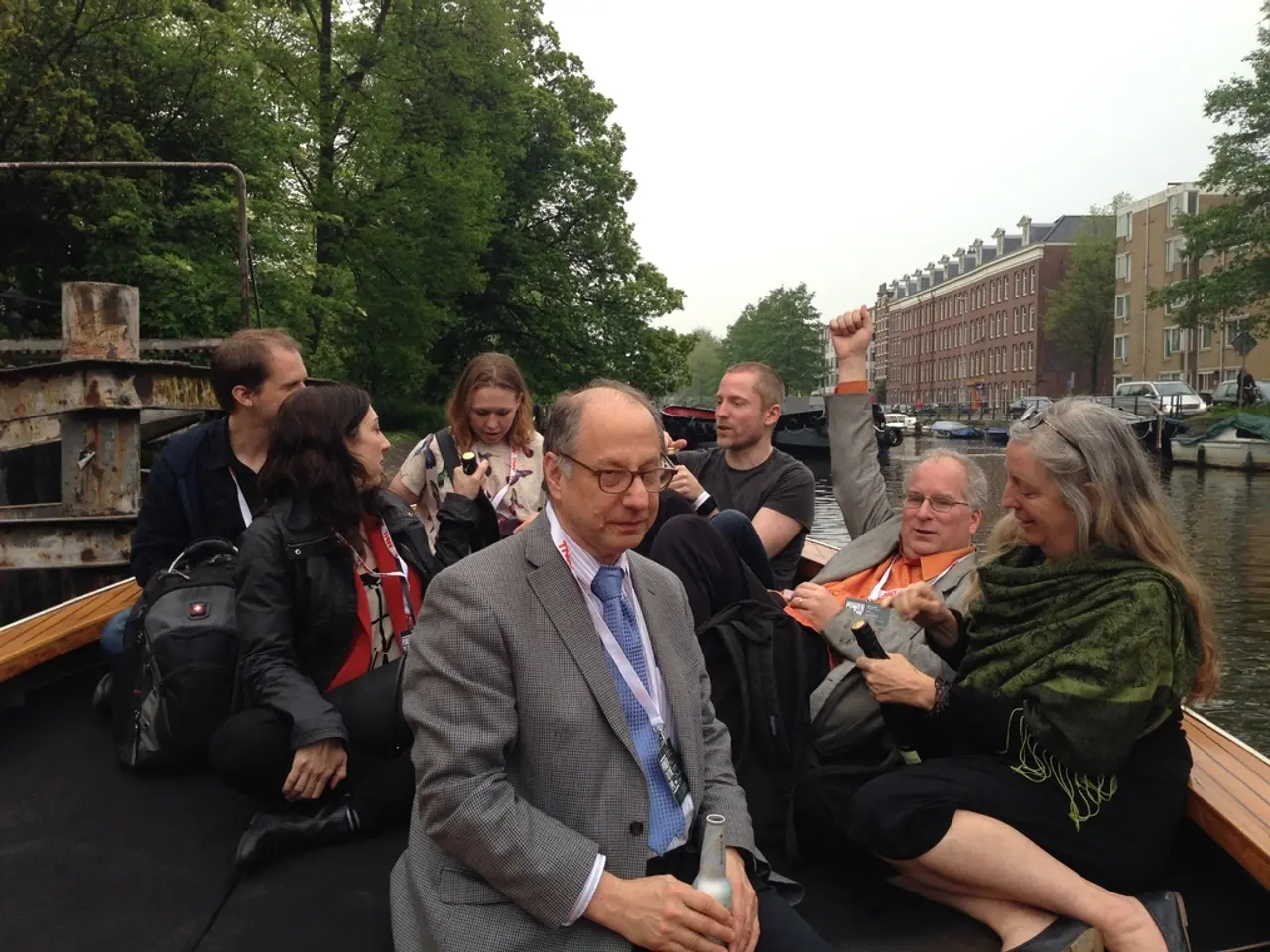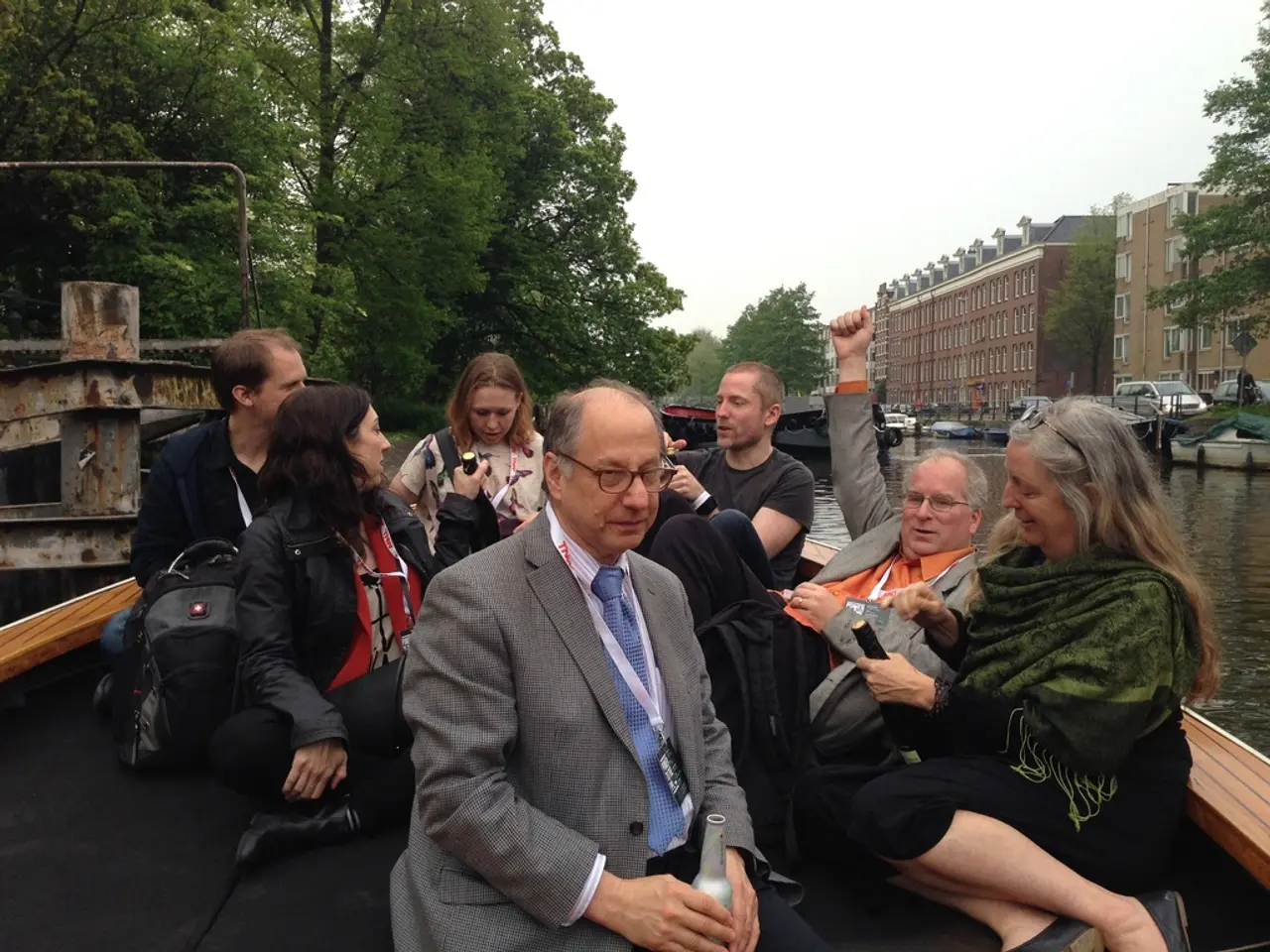Lawful non-citizens' anti-Israel speeches given First Amendment protection, according to a federal judge's statement
In a landmark trial, the focus is on the administration's efforts to limit protected political speech, particularly in relation to anti-Israel views. The trial, set for closing arguments on Monday, revolves around the question of whether lawfully present non-citizens have the same First Amendment rights as U.S. citizens.
Judge William G. Young has made it clear that lawfully present non-citizens in the United States likely have the same First Amendment rights as U.S. citizens. This includes the right to free speech, even if some may find the political messages repugnant.
The trial is related to the use of a process by the Trump administration to limit the presence of individuals with anti-Israel views in the U.S. DHS agents testify that they work with the State Department to investigate individuals who may violate an executive order from President Donald Trump on antisemitism. The research conducted by DHS involves pulling information on what individuals have said or written regarding Israel and Palestine, including Google searches.
The administration has used this process to revoke the visas of several students and professors in the U.S. who have expressed anti-Israel views and is working to have them deported. One such case involves Tufts University doctoral student Rümeysa Öztürk, who was detained for six weeks, with her anti-Israel op-ed flagged to HSI agents by the State Department.
However, Judge Young's statements indicate that the First Amendment protects speech that some may find repugnant, such as antisemitism. He also stated that in order to find that someone has supported Hamas, it requires something more than criticism of Israel or support of Palestine. This suggests that the First Amendment protects political speech, even if it is critical of Israel or supportive of Palestine, in the context of the administration's actions.
It's important to note that protections like due process rights guaranteed under the Constitution apply to all "persons," not only citizens. This further supports that non-citizens have constitutional protections while present in the U.S.
While some legal challenges exist, the prevailing legal framework supports that lawfully present non-citizens have First Amendment speech rights equal to U.S. citizens, regardless of how unpopular or repugnant their political views are. These rights are part of constitutional guarantees not limited by citizenship status for those physically present in the country.
The State Department refers individuals for investigation, sometimes through lists compiled by third-party organizations. Reports are made for review and sent to the State Department if there's enough information for the Secretary of State to determine whether a person's presence in the U.S. may have adverse foreign policy consequences.
Despite the repulsive nature of antisemitism, Judge Young confirmed that antisemitism is not illegal. This trial underscores the importance of protecting free speech, even when it is controversial or unpopular. The outcome of this trial will have significant implications for the rights of non-citizens in the U.S. and the balance between free speech and national security.
The trial's controversy revolves around the administration's questionable tactics to limit free political speech, especially regarding anti-Israel views, which falls under the broader category of general news. Despite the administration's attempts to tackler certain speech through visa revocation and potential deportation, Judge William G. Young's ruling suggests that non-citizens have the same First Amendment rights to free speech, even if their political views are considered repugnant by others.








